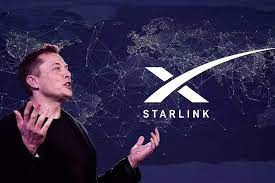It was stated by Mondli Gungubele, the Minister of Communications and Digital Technologies of South Africa, that Starlink, a satellite internet provider, is required to comply with South Africa’s legislation governing the equity threshold of 30% for Internet service providers (ISPs) to legally operate in the country.
Requirements for Starlink to conduct business
According to the legislation of this nation, in order for Starlink to conduct business in South Africa, it is necessary for individual IECS (Individual Electronic Communications Service) or IECNS (Individual Electronic Communications Network Service) applicants or licensees to have a minimum of thirty percent of their equity ownership held by members of historically disadvantaged groups.
Women, individuals of African descent, and those who struggle with some form of physical handicap make up South Africa’s historically disadvantaged population.
Read also: Payday returns to Rwanda using SpaceX’s Starlink
When questioned by Natasha Mazonne, a member of the Democratic Alliance party, about the prospect of modifying the legislation to allow corporations such as Starlink to operate in South Africa without meeting the equity requirements as long as it is of public interest, the Minister of Economic Affairs stated that she would consider the issue. In response, Mondli Gungubele said:
‘The 30% equity to be held by historically disadvantaged groups as enunciated in the regulations is derived from section 9(2)(b) of the Electronic Communications Act (Act No. 36 of 2005) as amended. On this basis, the regulations giving effect to the provisions of the Act cannot be amended until the ECA is amended.’
In addition, this condition cannot be changed unless the ECA itself is updated, which is not a straightforward procedure because it will necessitate an extensive period of public comment followed by government approval, which might take a number of months or even years to complete.
Gungebele further suggested that interested parties, including Starlink or its parent company SpaceX, can reach out to the Independent Communications Authority of South Africa (ICASA). This is because Starlink uses frequency spectrum to transmit data and will also need to apply for a Radio Frequency Spectrum license for this purpose.
They are able to interact with ICASA in order to obtain advice and direction on the particular rules and laws that must be met in order to run a satellite internet service in South Africa. ICASA is able to provide information on the relevant procedures, licences, and any other local operating issues that may be applicable.
In his response, Gungubele also said,
‘As a Department, we welcome partners and investors to develop and invest in the sector and economy; and appeal that they comply with regulations for the sector.’
Recent turns of events
This new turn of events follows charges that Gungubele, a member of the ruling African National Congress (ANC), as well as the party itself, were attempting to obstruct the introduction of Starlink in the local market.
However, Gungubele made it clear that the Independent Communications Authority of South Africa (ICASA) is the body that is responsible for providing licenses. He emphasized that the Independent Communications Authority of South Africa (ICASA) had not yet received any license applications from Starlink.
According to the reports, ICASA has met with SpaceX on two separate times to discuss the Starlink project. During these discussions, SpaceX allegedly inquired about the regulatory requirements or the process for gaining the requisite electronic communications service licenses in South Africa, as stated in the report. However, there has been no information regarding the subsequent measures that they intend to follow or the license applications that they have made.
